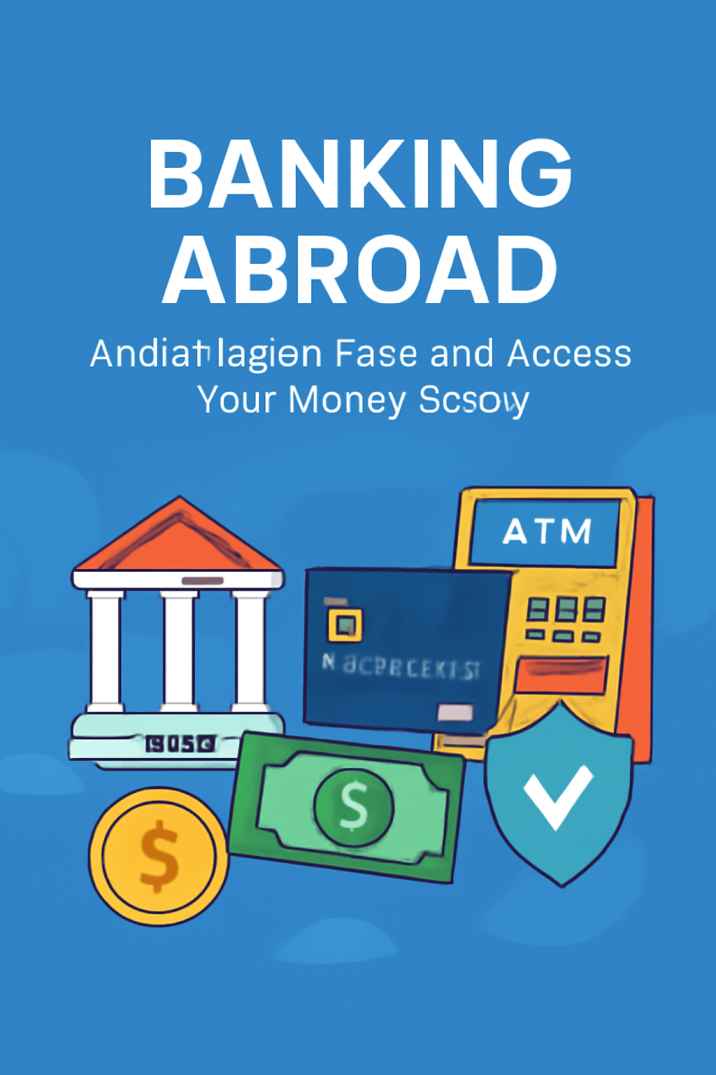
Managing your finances abroad can be a daunting task, especially when you encounter hidden fees and unfamiliar banking practices. Whether you’re living in a new country for a short period or planning to stay long-term, understanding how to safely access and manage your money is essential. This blog will guide you through strategies to avoid hidden banking fees and ensure you can access your money securely.
Understanding Common Banking Fees for Expats
-
Foreign Transaction Fees
-
Many banks charge a fee for using your debit or credit card abroad, often around 1-3% of the transaction amount.
-
Look for cards or banks that waive these fees to save on every purchase.
-
-
ATM Withdrawal Fees
-
Withdrawing cash from ATMs can come with fees, especially if you’re using an out-of-network machine or withdrawing from an international bank.
-
Some banks offer partnerships with global ATM networks to reduce or eliminate withdrawal fees.
-
-
Currency Conversion Fees
-
When you exchange currency, banks often add a markup to the exchange rate, leading to higher costs.
-
Use multi-currency accounts or services with competitive exchange rates to minimize these costs.
-
-
Account Maintenance Fees
-
Some banks charge monthly or annual fees for maintaining an account, which can add up over time.
-
Look for banks that offer fee-free accounts for expats or waive fees for meeting certain conditions.
-
How to Avoid Hidden Banking Fees
-
Open a Local Bank Account
-
Opening a local account can help you avoid international transaction fees and gain access to lower-cost services tailored to your new country’s banking system.
-
Be aware of the bank’s policies, including monthly fees, ATM access, and foreign exchange services.
-
-
Use Digital Banks and Neobanks
-
Many online-only or “neobanks” offer competitive exchange rates, low fees, and easy-to-use apps for managing your finances across borders.
-
Examples include Revolut, N26, and Wise, which offer low-cost international transfers and currency exchange.
-
-
Consider Multi-Currency Accounts
-
Some banks offer multi-currency accounts that allow you to hold balances in different currencies, saving you the hassle and cost of converting money.
-
This can be a great option for expats who frequently transfer funds between countries.
-
-
Set Up Alerts for Transactions
-
Many banks allow you to set up alerts for large transactions, fee charges, and ATM withdrawals, helping you stay on top of your expenses.
-
This can prevent unexpected charges and give you control over your spending.
-
Safe Ways to Access Your Money Abroad
-
Use Secure Payment Methods
-
When shopping or paying bills, use secure payment options like credit cards with fraud protection or mobile wallets like Apple Pay or Google Pay.
-
Avoid using public Wi-Fi for financial transactions and always log out of your banking app when not in use.
-
-
Be Cautious with ATM Withdrawals
-
Use ATMs in well-lit, secure areas, and avoid withdrawing large sums at once to reduce the risk of theft.
-
Check for skimming devices attached to ATMs and report any suspicious activity to the bank immediately.
-
-
Consider Digital Transfers
-
Use trusted digital transfer services like PayPal, TransferWise, or Western Union to send money between accounts internationally with lower fees than traditional banks.
-
Always double-check the exchange rate, fees, and transfer time before making a transaction.
-
Conclusion
Banking abroad doesn’t have to be a complicated or expensive process. By understanding common banking fees, taking proactive steps to avoid hidden charges, and using secure methods to access your money, you can ensure that managing your finances while abroad is both simple and cost-effective.


